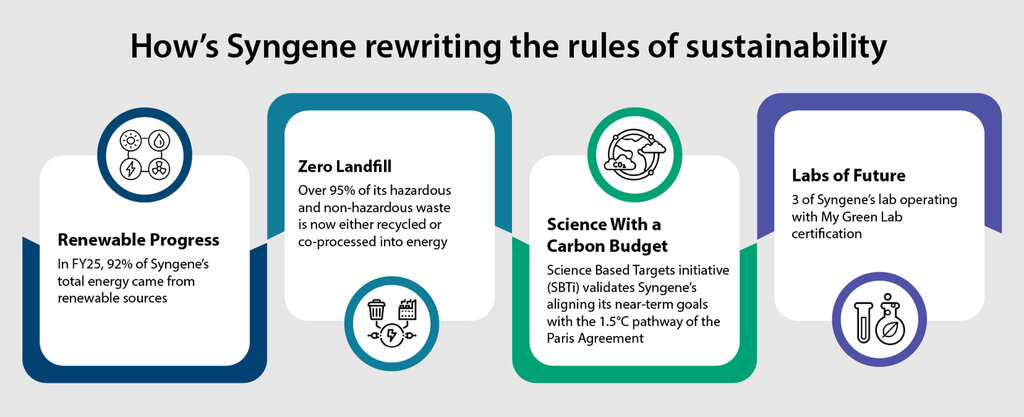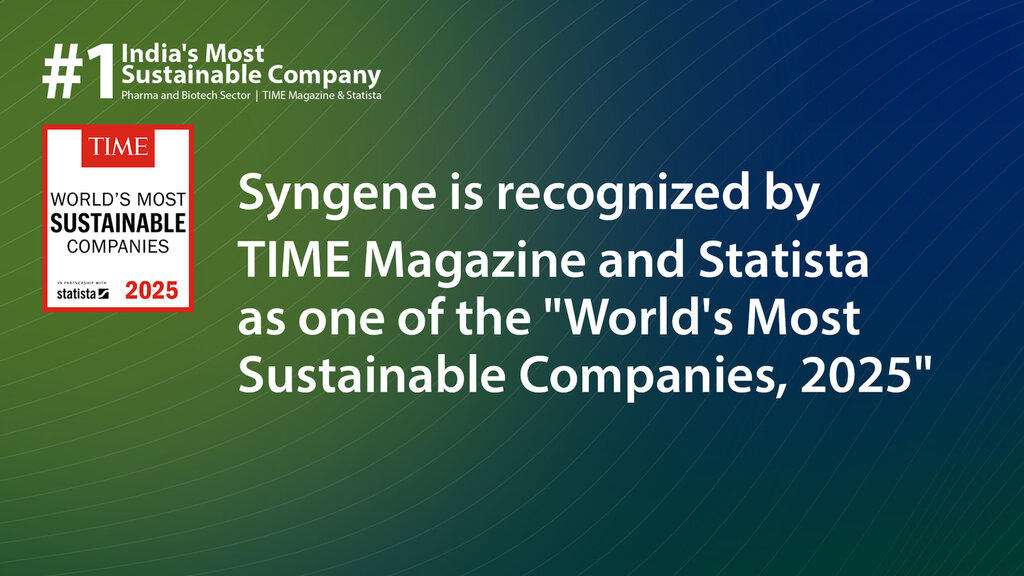Company Insight
Sponsored by Syngene
What It Takes to Be Among the World’s Most Sustainable Companies
TowHaul Corporation is the leading manufacturer of off-road lowboys specifically designed for the open-pit mining industry
Main image credit:
TIME Magazine and Statista recently named Syngene one of the World’s Most Sustainable Companies of 2025. Syngene landed in the global top 20 for its field, ranked #1 in India’s pharma and biotech sector, and cracked the top 10 Indian companies across all industries. Not bad for a company in a sector where sustainability isn’t always straightforward — or spotlighted.
But dig a little deeper, and the accolades make perfect sense. Syngene has been busily building a company where sustainability and science move in lockstep. From circular waste systems and climate-aligned targets to green chemistry and women-led labs, this is a business shaping what responsible innovation looks like.

Science With a Carbon Budget
In 2025, the company’s climate targets were officially validated by the Science Based Targets initiative (SBTi), aligning its near-term goals with the 1.5°C pathway of the Paris Agreement. The mission was to cut Scope 1 and 2 emissions by 54.6% by FY33 and bring its supply chain along for the ride, engaging vendors responsible for 81.6% of Scope 3 emissions to set science-aligned goals by 2028.
This kind of climate leadership is rare in pharma, where supply chains are expansive, global, and complex.
Renewable Progress
In FY25, 92% of Syngene’s total energy came from renewable sources, with investments in captive solar and wind projects playing a central role. A new rooftop solar array in Mangalore now offsets 100 tonnes of CO2 annually.
The company is already on its way to its next milestone: 96% green energy across all campuses by FY28.
Water is another area where Syngene is going further than most. From zero liquid discharge at key campuses to rainwater harvesting and reusing condensate from cooling systems, 64% of its water now comes from recycled or alternative sources. It’s science-led self-sufficiency, built one system at a time.
Zero Landfill
Not content to just reduce their waste, Syngene is removing it from the landfill equation altogether. Over 95% of its hazardous and non-hazardous waste is now either recycled or co-processed into energy. Cement kilns get fuel, landfills get nothing. A new digital tracking system has also replaced paper-based processes, increasing visibility and accountability across their sites.
Recognition to be Proud of
Alongside the TIME honour, Syngene’s 2025 accolades include:
- EcoVadis: Silver rating
- MSCI ESG: ‘A’ grade, placing it in the leadership bracket
- CDP: ‘B’ for climate change and water security
- CRISIL ESG: Strong performance with a score of 64
- Business World: #9 in India’s pharma sector for sustainability
And in an equally important show of leadership: #1 in India for women representation in pharma, as ranked by Fortune India.

Green Pharma and Labs of the Future
On the ground, Syngene is rethinking how labs function. Its Hyderabad site now runs on 100% recycled paper and plantable pens. 3 of Syngene’s labs are now working towards My Green Lab certification, a global benchmark for sustainable research environments.
Green chemistry is another frontier. Through smarter process design, greener solvents, and tighter atom efficiency, Syngene is cutting waste and emissions without needing to sacrifice scientific rigour. The payoff is safer labs, reduced operating costs, and a more sustainable research pipeline.
The urgency for greener pharma and chemistry is growing. A 2022 study across 104 countries found pharmaceutical pollution in 43% of river sites, with up to 34 different active pharmaceutical ingredients detected in some locations. As APIs become priority substances under European regulations, and solvents like DMF and NMP face restrictions under EU REACH due to toxicity concerns, the case for green chemistry is stronger than ever – with atom economy and enzymatic catalysis being critical in this effort. In peptide manufacturing especially, moving away from hazardous solvents is not just safer, but increasingly necessary.
People First, Always
With over 8,200 employees — more than 5,600 of them scientists — Syngene’s ESG momentum is powered by its people. The company’s efforts around inclusion, learning, and gender equity aren’t separate from its sustainability journey; they’re core to it.
Scaling Up, Stateside
Syngene’s global ambitions took a concrete leap forward earlier this year, with the $50 million acquisition of its first U.S. biologics manufacturing facility—an advanced site in Bayview, Maryland, equipped with 50,000 litres of single-use bioreactor capacity. Purpose-built for monoclonal antibody (mAb) and recombinant protein production, the site expands Syngene’s end-to-end services for large molecule development, from cell line to commercial supply.
With demand rising for U.S.-based manufacturing, particularly from mAb innovators and the growing animal health market, the facility strengthens Syngene’s position as a truly global partner. With operations expected to begin here in late 2025, it complements their existing capabilities in India and North America while offering clients the assurance of onshore production in one of the world’s busiest biotech corridors.
Raising the Bar for the Entire Sector
As a member of CRDMO industry, Syngene is focused on building smarter operations, global competitiveness, and talent development. Syngene is helping to forge the resilience and future-readiness of the life sciences sector. While not ESG-led in mandate, the initiative contributes to the industry’s sustainability in a broader sense by promoting efficient practices, upskilling the workforce, and fostering shared innovation for a collaborative biopharma ecosystem. It’s also partnered with the ACS Green Chemistry Institute and is a member of the Pharmaceutical Supply Chain Initiative (PSCI) to push responsible sourcing up the ladder.
And in a first for Indian pharma, its Biologics QC lab earned 5S certification, recognising excellent quality, safety and efficiency; all pillars of responsible lab management.
With 50% of respondents in GlobalData’s 2025 ESG Sentiment Poll believing companies still treat ESG as marketing, Syngene sees this as an opportunity to lead with substance.
A New Playbook for Science-Led Sustainability
Syngene is creating a new model where sustainability drives innovation, not the other way around. For more information, please refer to their latest Annual Report.